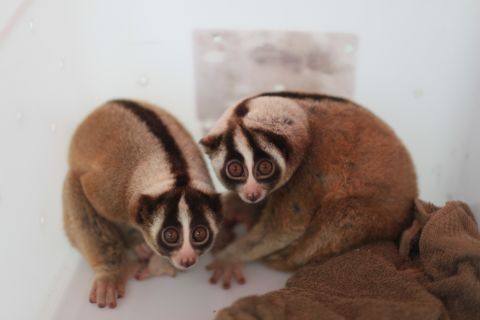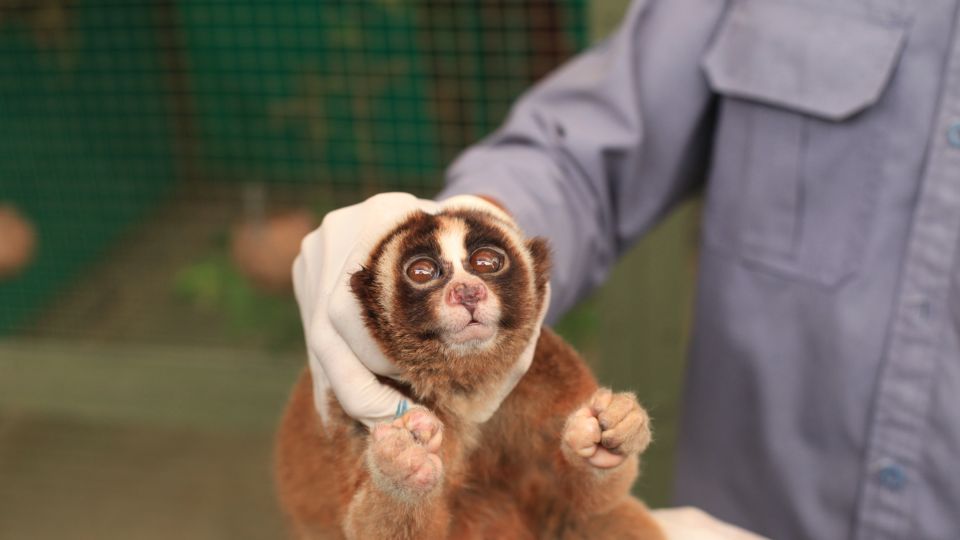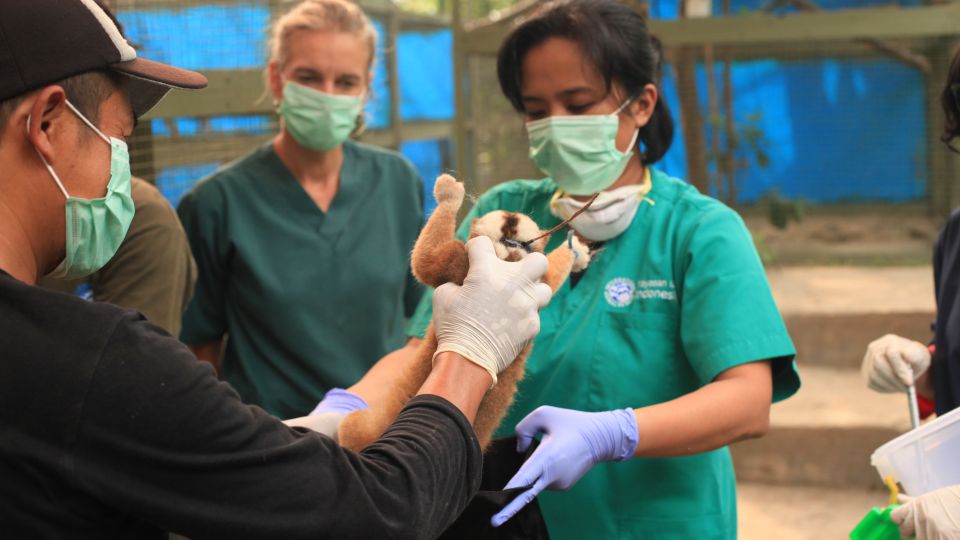
For the past two weeks the team at our primate rehabilitation centre in Bogor, West Java has been preparing 20 slow lorises for release back into the wild.
The veterinary team has carried out medical checks on all the candidates for release into the forest conservation area of Masigit-Kareumbi, Bandung.
The medical check-up includes weighing and measuring each loris, carrying out a dental examination, taking X-Rays and administering de-worming medicine.

The 20 lorises consist of seven males and 13 females. Most of them had been kept as pets and were then surrendered by their owners to the Forestry Department (BKSDA) in the West Java area during 2015 and 2016.
The names of the lorises are: Lia-Lio, Petra, Mojang, Jajaka, Tako, Zwitsal, Iik, Merdeka, Zohri, Yuna, Buyung, Dove, Colek, Najuna, Airin, Haq, Gimbul, Petri, Sari, and Itih.
When they first arrived at IAR’s rehabilitation centre, the lorises were in extremely poor condition. Most of them were dehydrated and suffering from malnutrition and stress. However, after spending time in quarantine, undergoing treatment and lengthy rehabilitation, they are all now ready to return to their natural habitat.
Based on the results of the check-ups, IAR vet Purba Priambada has confirmed that all the lorises are in good condition and displaying normal behaviour.
Our field team has also conducted feasibility and evaluation surveys of potential habitat for releasing them.

The release of the slow lorises is due to take place at the end of August. The release programme is a collaboration between the Natural Resources and Forestry Department (BKSDA) West Java and IAR Indonesia. Local people living near the release site will also be involved in the translocation process and in the post-release monitoring.
It is now just a question of keeping all the slow lorises healthy and happy until release day dawns.
IAR CEO Alan Knight OBE said: “The release of these lorises back into the forest will be the culmination of several years’ hard work by everyone involved in their rescue and rehabilitation. It will be a day to remember. These little primates are Critically Endangered and it is vital that we protect and preserve as many individuals as we possibly can if we are to save the species from extinction.”

